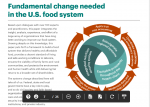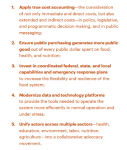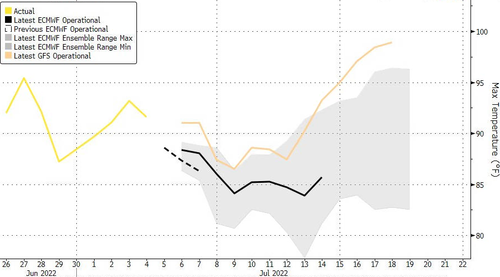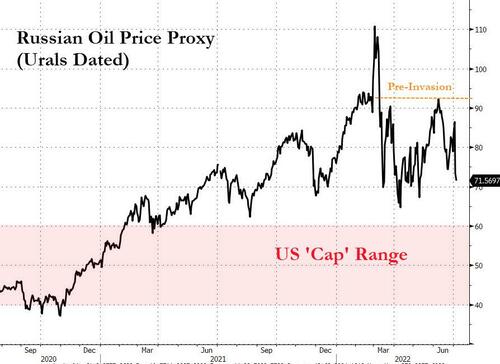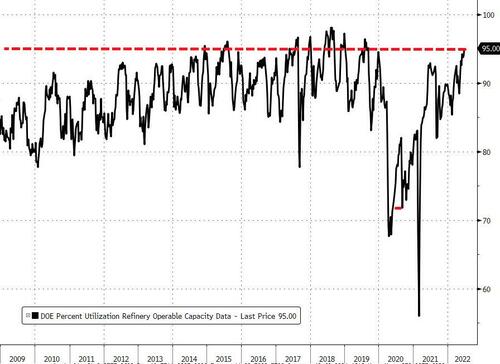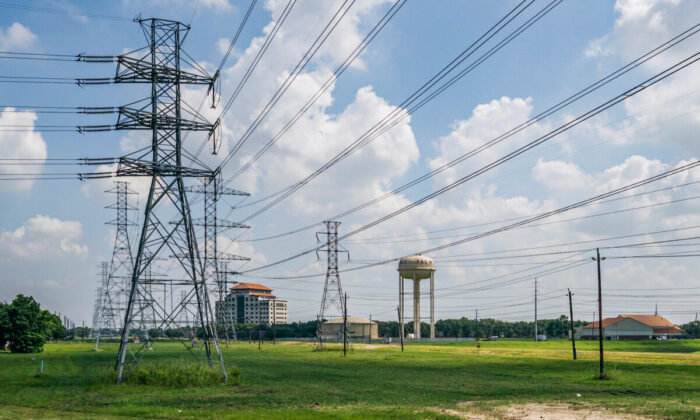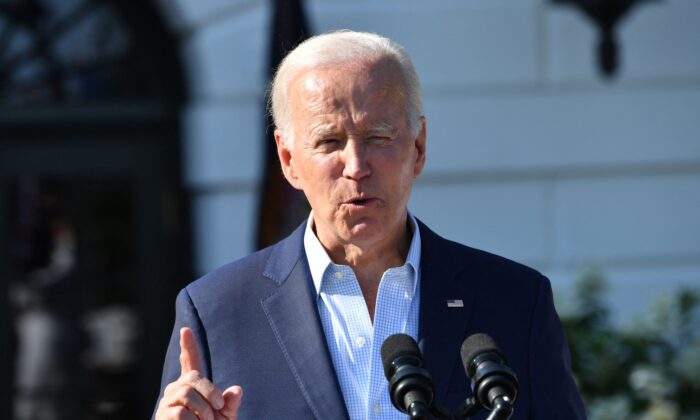ZeroHedge - On a long enough timeline, the survival rate for everyone drops to zero

www.zerohedge.com
Coal Emerges Victorious As Sanctions And Green Policies Backfire Spectacularly
TUESDAY, JUL 05, 2022 - 08:20 PM
When historians look back on this chaotic and turbulent period, they will find that few individuals inflicted as much damage on the environment and promoted the interests of the "dirty fossil fuel" lobby as Greta Tunberg, who by shaming and forcing "serious" politicians to pivot toward green energy at a time when there was nowhere near enough green capacity to replace existing sources of energy, sparked what may be the most spectacular self-own in history. And today, the
WSJ,
Bloomberg and
Reuters all wrote about it.
We start with the
WSJ which concedes what was obvious to most long ago (see "
Will ESG Trigger Energy Hyperinflation" from last June), namely that "an energy-starved world is turning to coal as natural-gas and oil shortages exacerbated by Russia’s war against Ukraine lead countries back to the dirtiest fossil fuel."
Yes, contrary to the intentions of Green fanatics everywhere, their push to accelerate away from "dirty" fossil fuel has not only backfired spectacularly, but also exposed the hypocrisy and empty promises of so many virtue-signalers, as "
from the U.S. to Europe to China, many of the world’s largest economies are increasing short-term coal purchases to ensure sufficient supplies of electricity, despite prior pledges by many countries to reduce their coal consumption to combat climate change."
Adding insult to injury, the global competition for coal which is now also
in short supply after years of declining investment in new mines and resources, has driven benchmark prices to new records this year. Spot coal prices at Australia’s Newcastle port, a key supplier to Asia, topped $400 a ton for the first time last month.
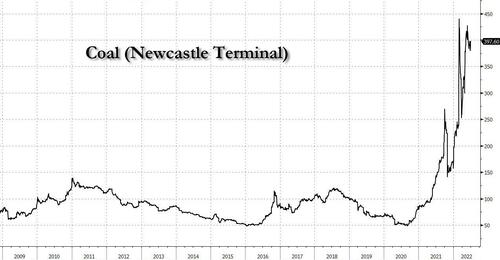
Hilariously, the push for coal is being led by Europe, ground zero of the "green movement" which finally realized that one can't burn fake virtue or melt posing in front of camera in the winter to keep warm, and is boosting coal purchases to ensure it can keep power flowing to homes and factories after Russia cut gas supplies to the continent. Germany, which not long ago promised to eliminate coal as a power source by 2030, is among the nations now importing more. Economy Minister Robert Habeck called the increased reliance on coal bitter but necessary. Spoiler alert: Germany will not eliminate coal as a power source by 2030, if anything it will be more reliant on it than ever unless it also restarts its nuclear power plants which it, idiotically, shut down not long ago.
Never one to admit it was dead wrong, however, Europe has a response to everything: “Right now the sentiment is that more coal is better than more Russia,” said Alex Msimang, a London-based partner at law firm Vinson & Elkins LLP specializing in the energy sector.
Whatever dude.
Propaganda bullshit aside, coal is enjoying a renaissance the likes of which it has not seen since the industrial revolution. In addition to soaring coal power use in the US (after the sector was left nearly for dead under Obama), China, the world’s biggest coal consumer, is expanding production of the fuel and its use in power generation, spooked by shortages last year that caused electricity cuts and outages throughout the country, energy experts say.
India is also leaning hard on coal as energy demand increases. The nation’s coal-power generation hit a record in April, said Rahul Tongia, a senior fellow at New Delhi-based think tank the Centre for Social and Economic Progress.
Domestic coal production in China and India helped drive a 10% increase in global investment in 2021, the International Energy Agency reported last month. The IEA projects another 10% increase this year as China and India try to stave off shortages.
Coal miners such as Anglo-Swiss giant Glencore are cashing in. Glencore, one of the last major miners still big in coal, said last month that it
now expected $3.2 billion in trading profit in the first half of this year, compared with $3.7 billion for all of 2021.
“We expect elevated coal prices to make Glencore one of the leading shareholder-return companies in the market,” Deutsche Bank AG analysts wrote. The company's already wealthy shareholders can thank idiots like Greta for becoming even richer.
The best part: the global green lobby is about to be silenced forever.
The resurgence of coal, which emits around double the carbon dioxide as burning natural gas, further threatens to set back international efforts to keep global temperatures under 2 degrees Celsius from preindustrial levels, and preferably close to 1.5 degrees, by the end of the century.
That is the goal that more than 190 nations agreed to pursue under the 2015 Paris Agreement to avoid the most dangerous potential consequences of global warming. The United Nations Intergovernmental Panel on Climate Change says that emissions, which continue to rise, would need to be drastically reduced by the end of the decade to meet the goal.
Then again, with the west especially skilled at deluding itself, who's to say the lies won't continue. Indeed, as the WSJ notes, climate activists and forecasters say they are concerned about a rise in coal use, but see it as a short-term phenomenon in the West and are more worried that the Ukraine war and other geopolitical events are spurring new natural-gas investments that could operate for decades.
“It can be justified but not for long,” said Bill Hare, chief executive of the Berlin-based group Climate Analytics, of the coal surge.
Oh ok, we are confident that Putin will end his military campaign in Ukraine just to keep a bunch of Scandianvian teenagers happy so they can continue spouting nonsense into
masked microphones.
Joking aside, what Putin
will do is continue selling Russian coal to Europe - yes, the same Europe that pretends to have imposed sanctions on Moscow - because as
Reuters writes, "much of the focus on sanctions on Russia's commodity exports is on crude oil and natural gas,
but coal is perhaps the best example of the challenges facing those seeking to punish Moscow for its invasion of Ukraine."
Russia is the world's fourth-largest coal exporter behind Australia, Indonesia and South Africa, and has the ability to supply both the Atlantic and Pacific basins.
And yes, while Europe - the main buyer of Russian coal - has proposed a ban on imports it has yet to be even partially implemented, while Japan also plans to end purchases from Russia.
Likewise, South Korea has yet to formally sanction imports of Russian energy but is said to be planning for an end to the trade, while China and India, the world's two biggest coal importers, have no sanctions on Russia and are stepping up imports in order to benefit from steep price discounts, similar to what is taking place in the oil market.
And also similar to oil, where Russian exports have increased since before the war...
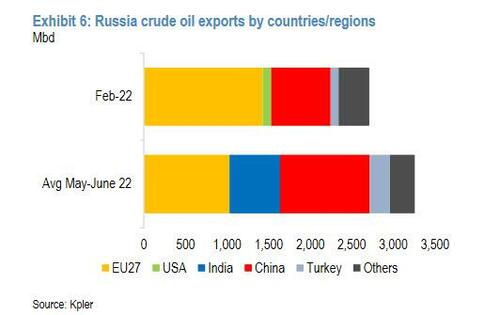
... an analysis of Russia's seaborne exports of coal since the invasion of Ukraine show that it has not only managed to maintain volumes but has actually increased them: while there has been some switching of buyers, the loss of some markets in Europe and Japan has been more than offset by increased buying, especially by India and Turkey.
According to data from Kpler, Russia exported 16.45 million tonnes of coal by sea in June, virtually unchanged from May's 16.56 million. This level of seaborne exports is an acceleration from the same months in 2021, with June shipments up 3.5% and May up 3.8%. It is also a sharp increase on the three months up to the Feb. 24 attack on Ukraine, when Russia's seaborne coal exports were 13.43 million tonnes in December, 12.28 million in January and 13.08 million in February.
That said, while Europe has been spouting mostly hot air, Europe's top buyers of Russian seaborne coal - Germany, the Netherlands and Italy - have started to cut back, with June arrivals at a combined 1.47 million tonnes, down from 2.59 million in May. Yet all that Europe is doing is buying coal from resellers of Russian coal, effectively paying more from the same product. One beneficiary is Turkey. The country which has been supplying Ukraine with military drones, has also ramped up imports of Russian coal, with June arrivals at 1.81 million tonnes, which is the most in any month in Kpler's records going back to 2017.
Turkey's imports from Russia were 1.06 million tonnes in May and they have risen every month since February.
Much of the excess coal is then resold to Europe at a steep mark up.
Overall, what the coal data shows is that
Russia has been able to maintain export volumes, even if it has done so by offering discounts. It also shows that it is difficult to both ramp up imports significantly, even if you want to, with both India and China likely to have hit constraints on securing vessels to buy more Russian coal.
And speaking of supply side constraints, we next go to
Blooomberg which writes that the hunt by Europe’s coal consumers to replace Russian cargoes with shipments from across the globe has boosted imports to a key hub by more than a third, helping to fill severely depleted stockpiles.
Coal poured into the Antwerp-Rotterdam-Amsterdam region -- a huge transport hub for energy and commodities -- in the first half of this year, with imports surging 35% to 26.9 million tons compared with the same period last year, according to Kpler. That has helped ARA coal inventories double to almost 6.6 million tons from more than a five-year low in the first quarter.
Stockpiles are now close to record levels seen in 2019, according to Kpler.
On the downside, the flood of imports is contributing to major congestion at the ports.
Shipments are soaring as the region scrambles to replace missing Russian product amid fears of continued declines in Russian nat gas exports - and a freezing winter- said Matthew Boyle, lead analyst for dry bulks, gas and LNG at Kpler Insight. Helping to fill the gap is more coal from the US, Colombia and Australia -- countries that tend to produce better-quality or so-called high-calorific value material that releases more heat and energy when burned. Of course, the high quality product is also priced accordingly, and as shown in the chart above, Australian coal just hit a record high price, something which has led to Europe's record 29.1% PPI.
Australian exporters including Sydney-based Whitehaven Coal have had supply requests from European nations, including Poland, and the firm previously offered 70,000 tons of coal in a government aid package sent to Ukraine. Soaring differentials between European and Australian prices have made it viable for traders to send cargoes from the Asia-Pacific region, even after taking into account the high shipping cost for the longer journey. Some low-quality Indonesian coal has also made its way into Europe, although Kpler said they were likely blended with US material with higher calorific value.
Meanwhile, in the latest slap on the face of environmentalists and petulant Scandinavian teenagers everywhere, the competition for a fuel many want to consign to history is escalating as power generators across Asia and Europe seek to secure additional shipments amid an energy crunch.
Germany and Austria are reviving idled coal power plants in response to Russian gas supply curbs, while Japan and South Korea are stockpiling the fuel ahead of hotter summer weather.
And in the latest example of chaos theory butterflies and unintended side-effects, the heavy inflow of coal shipments is exacerbating gridlock at the ports.
“We are seeing very high congestion for the main European ports,” said Abhinav Gupta, a drybulk shipping analyst at Braemar. There were 71 drybulk ships waiting at anchor at the area off Antwerp, Rotterdam and Amsterdam as of June 29, triple the five-year average of 24 ships for this time of the year.
Current waiting time for coal vessels amounts to about 10 days, according to Kpler, who said low river levels on the Rhine also contributed to delays. It expects that will improve to about eight days by mid-July.
Coal terminals are currently at full storage capacity, and transporting large volumes of the fuel inland “has become a challenge over the past few weeks,” the Rotterdam port said. The situation has been complicated by a shortage of barges, it said, as many vessels are tied up with Ukrainian iron ore and grain exports.
In short: total chaos, courtesy of years of catastrophic policies at the behest of the green lobby.
As for the discredited ideologue Greta, fear not: she still has a podium where more than 5 million followers lap up each of her carefully scripted and produced tweets:

It almost makes one wonder: just how much is Putin paying her? Either that, or as Adam Taggart put it...













